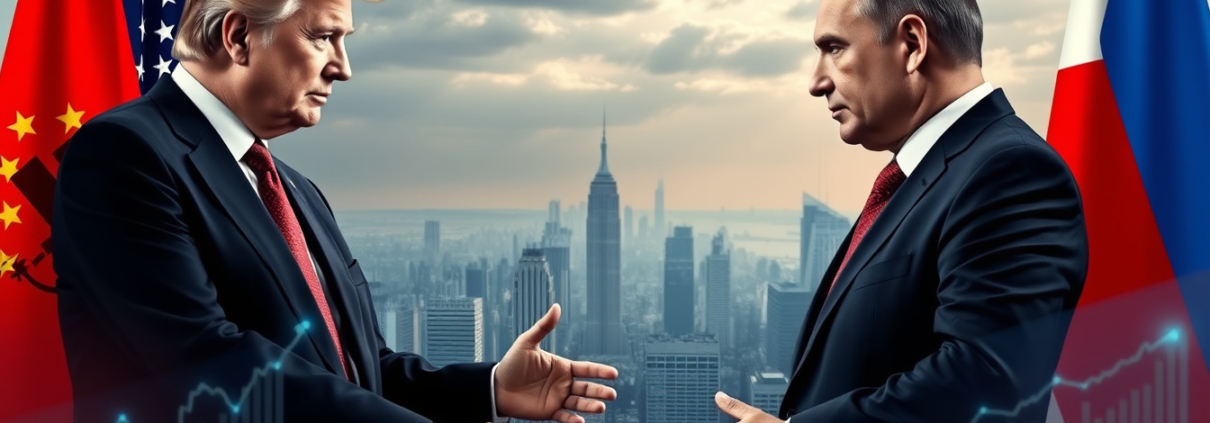Trump-Putin Talks: A Strategic Win for Moscow Amid Economic Struggles and Market Impacts
Trump-Putin Talks Mark Significant Victory for Moscow, Impacting Economy and Markets
Global interest grows. Putin and Trump meet in Alaska this Friday. This meeting wins for Moscow, its weak economy, and world markets. It seeks to end the war in Ukraine—a conflict that hurts both nation ties and money flows.
A Symbolic Win for Putin and Russia
The meeting shows a clear sign of power. Richard Portes, who leads the economics studies at London Business School, says the mark is strong. This time, since 2007, Putin meets on U.S. soil with no limits or other sides present.
Portes said, "This win is big for Putin… No limits and no Ukraine or any European side. This is a win."
Ukraine’s Exclusion Sparks Concern
Ukraine is not in this talk. Leaders in Kyiv, like President Volodymyr Zelenskyy, wait on an invite. They worry that their voice will be lost. Kyiv says no choice about its fate comes without it. In Europe, leaders ask hard to see Ukraine join. The U.S. seems to think about inviting Zelenskyy too.
Economic Context: Russia’s War Economy Under Strain
Russia wins some ground on the battlefield in southern and eastern Ukraine. Yet, its money matters are weak. Sanctions and high inflation—9.4% in June 2025—hurt its funds. The war makes a large budget gap. Oil and gas cash falls with low prices and the limits. Money work stays poor, even as field wins rise.
Portes said, "Putin begins with strong field actions but weak money power."
Potential Implications for Sanctions and Territorial Concessions
Russia, with a strong field, seeks fast relief from limits and some land in Ukraine. Kremlin voices also see new work and sales chances from a warmer U.S.-Russia tie, in Alaska and the Arctic. Yet, the U.S. may not back more limits. Washington talks of "secondary limits" against Russia’s trading friends like India. Trump has not started extra limits even as calls for more come in.
Market Reactions: A Mixed Picture
World markets react with hope to the talk news. Stocks in Europe and the U.S. rise on Friday. Yet, defense stocks drop as the idea of peace may bring less money for arms.
- Defense Shares Falling: German firms Rheinmetall and Hensoldt lose nearly 4% and 1.5%. Similar drops hit Italy’s Leonardo and France’s Thales.
- Gold Prices Decline: Gold, a safe spot, slips by about 1% as political tensions ease.
Christopher Granville, managing director at TS Lombard, sees a win on both sides for Europe’s defense names. He explains:
• If the talks break, the war goes on. New arms then will be needed.
• If a deal holds, Russia’s strong field still pushes Europe to buy arms.
Granville tells traders, "Buy on that drop," expecting long gains for defense groups no matter what happens with the talks.
Looking Ahead
The Trump-Putin meet in Alaska sits at a key turn. The talks serve as a sign for Russia. Yet, eyes stay fixed on real steps—especially for Ukraine and for what U.S. will do with Moscow’s limits. As events shift, global markets and politics stay alert and hopeful for a deal that keeps safety and money matters in careful balance.
For ongoing updates on the Trump-Putin talks and their global impact, stay tuned to CNBC and other trusted news sources.









